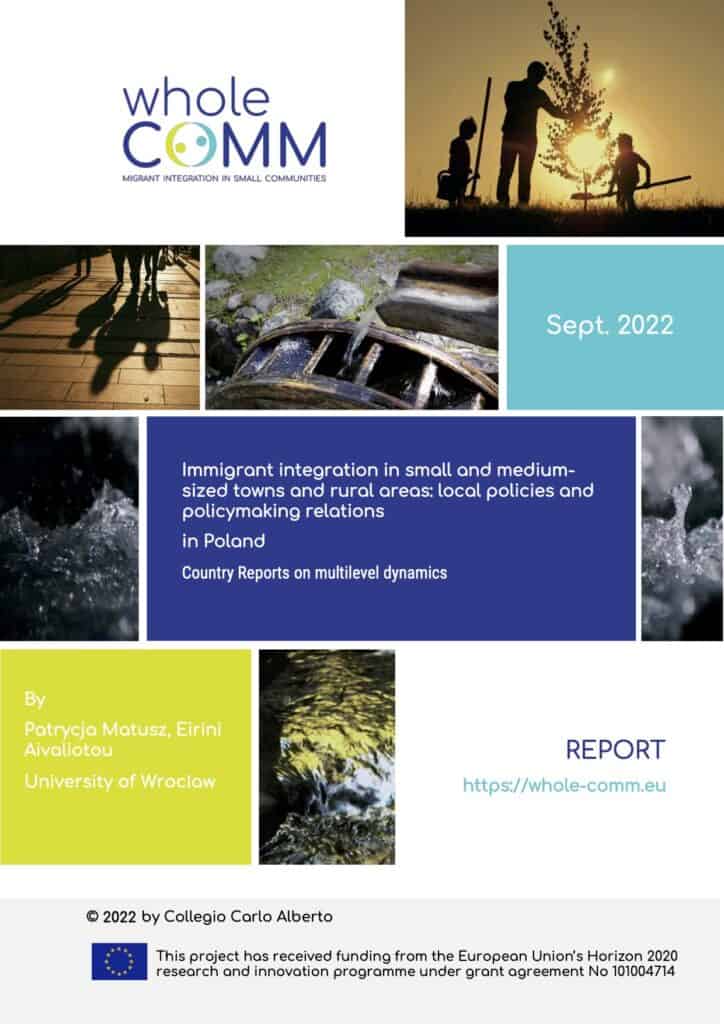This report looks at multilevel governance dynamics and at the integration policies targeting post-2014 migrants developed by six small and medium-sized towns and rural areas in Poland. Primarily based on interviews conducted in each of the selected municipalities, it provides an overview of:
1) national, regional, and local integration policies targeting migrants in Poland;
2) policymaking relations among the key actors involved in these policy processes in the six localities and key features of policy networks within which these actors interact;
3) how these actors perceive and define integration.
The report finds that Poland has not yet created a nationwide integration policy, however, good practices are shared between different actors involved, leading to the rise of initiatives taken predominantly at the regional and local levels. No policies at the national level directly affects the funding of various public and private organisations dealing with the integration of migrants, leaving them with shortages of funds or with complete dependence on external funds (e.g., from the EU). With the majority of the labour migrants coming from neighbouring countries, the Polish government, emphasises on solely providing quick fixes like Polish language courses. Overall, at the national level, integration in some cases resembles the concept of assimilation, whereas, at the regional and local levels various actors appear to take the lead and form their own tailor-made integration policies. Medium-sized and small towns have developed several mechanisms to handle migration flows and integration programs, in contrast with rural areas, which are still struggling to employ similar practices.
Authors:Patrycja Matusz, Eirini Aivaliotou


